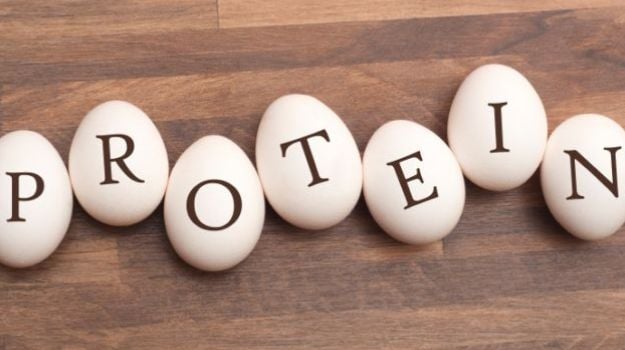High-protein foods make you feel fuller between meals, an important factor that can ultimately help you reduce overall calorie consumption and reduce weight, suggests new research. Higher protein loads have a greater effect on fullness than lower protein loads, showed the findings of the study, thereby confirming a long-held belief that protein intake impacts satiety.
"Though this study did not specifically evaluate dieters, feeling fuller could help to reduce food intake, an important factor when dieting," said lead investigator Richard Mattes, professor at Purdue University in Indiana, US.
"If these effects are sustained over the long-term -- and our study only looked at short-term effects -- increased protein intake may aid in the loss or maintenance of body weight," Mattes noted.
High protein foods include eggs, meat, fish, tofu, beans, lentils, yogurt, and nuts, among several other food items. In this study, researchers conducted a systematic review of the evidence on the effect of protein intake on perceived fullness and confirmed that protein does, in fact, make us feel fuller.
"A good deal of evidence suggests that protein activates satiety hormone release and so should be most strongly tied with fullness ratings," Mattes noted.
"But individual studies are often conducted in small populations or with different approaches that can make interpretation of results challenging. Our study combined multiple experiments to confirm the presence of an effect," Mattes pointed out.
With the confirmation that protein intake is related to satiety, defined as fullness between meals, modestly higher protein intake may allow individuals to feel fuller between meals. Yet, while protein may help dieters feel fuller, it is by no means a magic bullet, the researchers cautioned.
"Feelings like hunger and fullness are not the only factors that influence intake. We often eat for other reasons. Anyone who has ever felt too full to finish their meal but has room for dessert knows this all too well," Mattes explained.
"The exact amount of protein needed to prolong fullness as well as when to consume protein throughout the day is not resolved, and our study did not determine this," Heather Leidy, assistant professor at University of Missouri, said.
So while the researchers encourage the public not to consume protein to the point of excess, the study suggests that people looking to moderate their energy intake by enhancing the sensation of fullness might consider a moderate increment in protein consumption as a first step.








